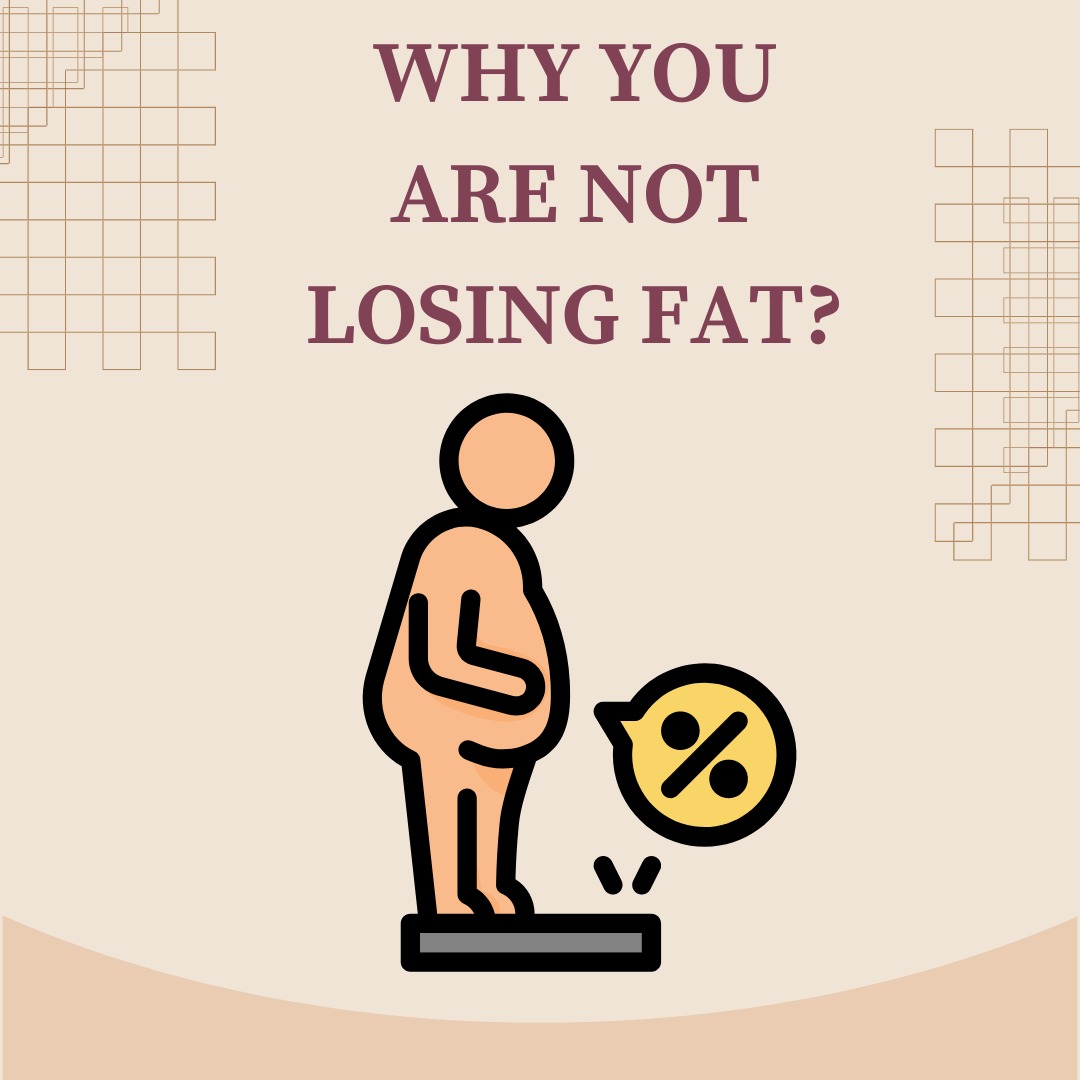- Caloric Intake Exceeds Expenditure
At the core of fat loss is the principle of energy balance: consuming fewer calories than the body burns. This is known as a caloric deficit. If someone is not losing fat, it’s possible they are underestimating their caloric intake or overestimating how many calories they burn during exercise. Even small excesses in caloric consumption can prevent fat loss over time. Hidden calories from snacks, condiments, or beverages (like sugary drinks and alcohol) can add up quickly, negating the deficit needed for fat loss. 2 . Lack of Accurate Tracking
Not tracking food intake accurately is a common issue. Many people underestimate portion sizes or fail to account for “mindless eating,” like snacking between meals or consuming calorie-dense foods without realizing it. Utilizing a food diary, a calorie-tracking app, or simply weighing portions can help get a clearer picture of actual caloric intake. In some cases, individuals may also miscalculate how much energy they are expending during exercise, thinking they’re burning more calories than they actually are. 3 . Over-reliance on Exercise
Exercise, while important, is not a guarantee for fat loss unless it is paired with proper nutrition. Some people believe that simply increasing their exercise will result in fat loss without modifying their diet. However, the caloric burn from exercise can be easily offset by eating more post-workout or making poor food choices. Additionally, certain types of exercise, particularly low-intensity activities, may not burn enough calories to create a significant deficit. - Not Enough Protein or Poor Diet Quality
Diet quality plays a big role in fat loss. Consuming processed, sugary, or high-calorie foods can make it harder to lose fat, even if overall caloric intake is controlled. Protein, in particular, is crucial because it helps maintain muscle mass during weight loss, boosts metabolism, and increases feelings of fullness. A diet low in protein may lead to muscle loss instead of fat loss, making it harder to sustain long-term weight loss results.
5. Sleep and Stress
Sleep and stress levels are often overlooked in fat loss. Poor sleep quality or not getting enough sleep (less than 7-8 hours per night) can negatively impact metabolism, hunger hormones, and energy levels. Sleep deprivation can increase cravings for high-calorie, carbohydrate-rich foods, making it difficult to stick to a healthy diet. Stress, on the other hand, triggers the release of cortisol, a hormone that promotes fat storage, particularly in the abdominal region. Chronic stress can disrupt metabolic processes and lead to weight gain or stalled fat loss.
6 . Metabolic Adaptation
As the body loses fat, it becomes more efficient at conserving energy. This is known as metabolic adaptation, where the body burns fewer calories as a response to weight loss and reduced energy intake. This makes it harder to maintain a caloric deficit over time. When this happens, fat loss can plateau even with the same level of effort. To counter this, adjustments to caloric intake, exercise, or both are often needed.
7. Medical Conditions and Medications*
Certain medical conditions, such as hypothyroidism, polycystic ovary syndrome (PCOS), or insulin resistance, can make fat loss more challenging. These conditions affect metabolism, hormone regulation, and fat storage. Additionally, some medications, such as antidepressants, corticosteroids, or beta-blockers, can interfere with weight loss efforts by altering appetite, metabolism, or fluid retention.
Conclusion
Fat loss is influenced by many factors beyond diet and exercise. If you’re not losing fat, it’s important to reassess caloric intake, exercise routine, sleep quality, stress management, and any potential underlying health conditions. By identifying and addressing these barriers, fat loss can become more effective and sustainable.


